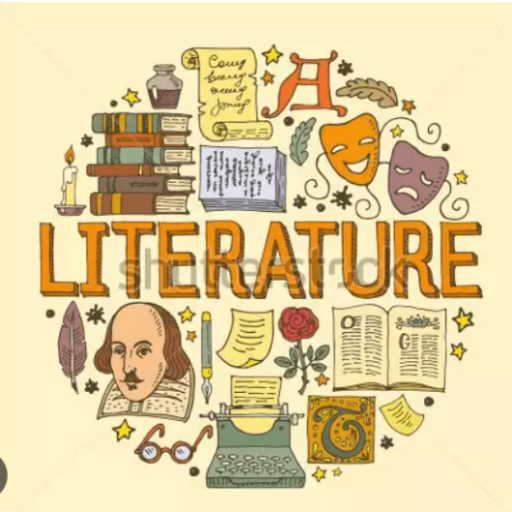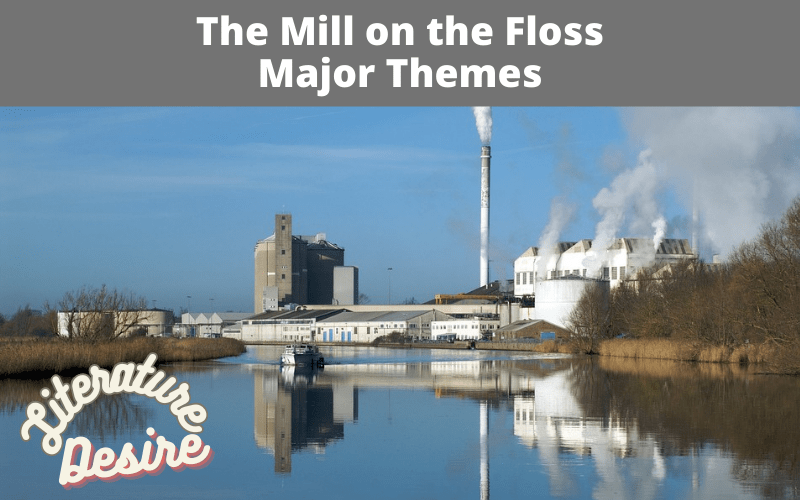“The Mill on the Floss” by George Eliot is a captivating novel that delves into a multitude of themes, offering readers a profound exploration of human experiences and societal complexities. Set in the fictional town of St. Ogg’s, the story revolves around the lives of Tom and Maggie Tulliver, siblings navigating the intricacies of family, society, love, and tragedy.
One prominent theme in the novel is the exploration of family and relationships. Society and class play a pivotal role in “The Mill on the Floss.” Another significant theme is gender roles and feminism.
Advertisement
Love and marriage are explored in the novel, presenting contrasting perspectives on romantic relationships and the societal pressures surrounding them.
Advertisement
Themes in The Mill on the Floss
Family and Relationships: The Dynamics of Sibling Relationships
Sibling relationships play a crucial role in “The Mill on the Floss.” The story revolves around the lives of Tom and Maggie Tulliver, brother and sister. Their relationship is marked by love, loyalty, and conflicts.
Advertisement
The bond between siblings is tested as they navigate their individual desires, societal expectations, and the complexities of their family dynamics.
Advertisement
Parental Influence and Expectations
The influence of parents on their children is another significant aspect of the novel. Mr. and Mrs. Tulliver, Tom and Maggie’s parents, have different expectations for their children.
Mr. Tulliver emphasizes the importance of wealth and social standing, while Mrs. Tulliver focuses on societal expectations and appearances. The clash between parental expectations and the desires of the children adds depth to the narrative.
Romantic Relationships and Society’s Expectations
Romantic relationships are explored within the context of Victorian society’s rigid norms and expectations. Tom and Maggie’s love interests, Philip Wakem and Stephen Guest challenge societal conventions.
Their relationships face obstacles due to class differences, moral judgments, and conflicting loyalties. The novel highlights the struggle between personal desires and societal expectations in matters of the heart.
Conflicts and Tensions within Families
“The Mill on the Floss” portrays the conflicts and tensions that arise within families. Sibling rivalries, generational differences, and misunderstandings contribute to the complex dynamics within the Tulliver family.
The novel explores how these conflicts shape the characters’ identities and influence their choices.
Gender Roles and Society
Gender Expectations and Restrictions
The novel provides a critical examination of gender roles and the limitations imposed on women during the Victorian era.
Maggie Tulliver, the protagonist, challenges traditional gender expectations through her intelligence, independence, and aspirations for knowledge. The societal restrictions she faces reflect the broader struggles of women in a patriarchal society.
The Struggle for Independence: Themes in The Mill on the Floss
Independence is a recurring theme in “The Mill on the Floss.” Maggie’s yearning for independence conflicts with societal expectations and familial responsibilities.
Her journey towards self-discovery and liberation represents the broader struggle faced by women seeking autonomy in a society that limits their choices.
Femininity and Masculinity in Society
George Eliot delves into the notions of femininity and masculinity in Victorian society.
The novel examines the impact of societal expectations on individuals’ behavior and self-perception. It challenges traditional stereotypes and presents complex characters who navigate the boundaries of societal norms.
Social Class and Education
Prejudices and Social Class Divisions
Social class divisions and prejudices are prevalent themes in “The Mill on the Floss.” The novel explores the consequences of class differences on individuals’ lives and relationships.
The conflicts between the landed gentry and the aspiring middle class shed light on the societal prejudices and limitations faced by those outside the aristocratic circles.
The Importance of Education and Knowledge
Education and knowledge play a significant role in the novel. The pursuit of education is portrayed as a means to overcome social barriers and achieve personal growth.
Maggie’s thirst for knowledge and her unconventional education reflect the broader societal changes of the time.
The Impact of Social Class on Opportunities
“The Mill on the Floss” examines how social class influences opportunities and life choices. Characters from different social backgrounds face varying degrees of limitations and privileges.
The novel exposes the inequalities present in Victorian society and raises questions about the fairness of social hierarchies.
Morality and Ethics
Society’s Moral Standards and Hypocrisy
George Eliot critiques the moral standards and hypocrisy of Victorian society. The novel challenges the notion of an absolute moral code and highlights the discrepancies between societal expectations and individuals’ actions.
The characters’ moral dilemmas reflect the complexities of navigating a society that upholds certain ideals while often falling short of them.
The Struggle between Personal Desires and Social Expectations

“The Mill on the Floss” delves into the internal conflict faced by individuals torn between their personal desires and societal expectations.
Characters grapple with the tension between following their hearts and conforming to social norms. This struggle highlights the complexity of human nature and the challenges of making moral choices.
Consequences of Moral Transgressions: Themes in The Mill on the Floss
The consequences of moral transgressions are explored in the novel. Characters who defy societal norms or act against their moral conscience face various repercussions.
The narrative raises questions about the nature of forgiveness, redemption, and the lasting impact of moral choices.
Nature and the Natural World
The symbolism of the River Floss
The river Floss serves as a powerful symbol throughout the novel. It represents the flow of time, the unpredictability of life, and the force of nature.
The river’s presence and its influence on the characters’ lives underscore the themes of fate, change, and the interconnectedness of human beings and the natural world.
Nature’s Influence on Human Lives
George Eliot emphasizes the impact of nature on human lives in “The Mill on the Floss.” The descriptions of the natural landscape evoke emotions and mirror the characters’ inner turmoil.
The novel explores the healing power of nature and the solace it offers amidst the chaos of human existence.
The Contrast between the Natural and Industrial World
“The Mill on the Floss” juxtaposes the natural world with the rising industrialization of the Victorian era.
The contrast between the rural idyll and the encroaching industrial landscape underscores the tension between tradition and progress.
The novel explores the consequences of industrialization on individuals, communities, and the natural environment.
Conclusion: Themes in The Mill on the Floss
“The Mill on the Floss” by George Eliot captivates readers with its exploration of various themes that remain relevant to this day. Through intricate character development and vivid storytelling, Eliot tackles family dynamics, gender roles, social class, morality, and the influence of nature.
The novel’s enduring appeal lies in its ability to resonate with readers across time, inviting introspection and reflection on the complexities of human existence.
Frequently Asked Questions
No, “The Mill on the Floss” is a work of fiction created by the author George Eliot.
George Eliot, a pseudonym for Mary Ann Evans, is also known for her other novels such as “Middlemarch” and “Silas Marner.”
“The Mill on the Floss” provides a nuanced depiction of Victorian society, exploring its values, constraints, and societal norms prevalent during that time.
The river Floss serves as a powerful symbol, representing the passage of time, the influence of nature, and the inevitable changes and challenges faced by the characters.
The novel examines the limitations and expectations placed on women in Victorian society, highlighting the struggles faced by its female characters in navigating societal norms and seeking independence.

